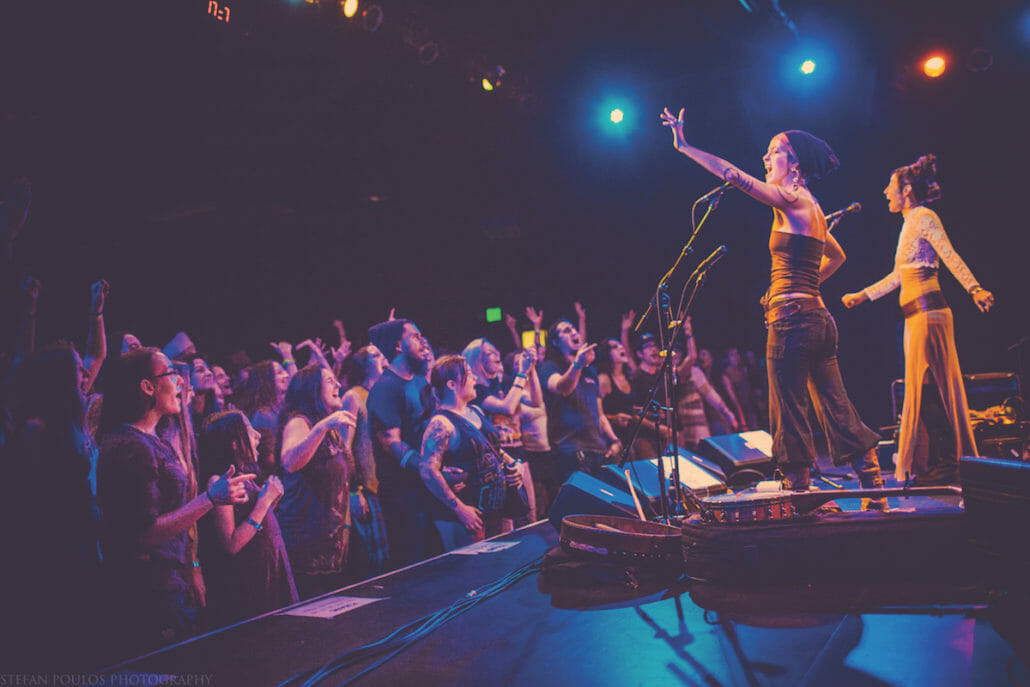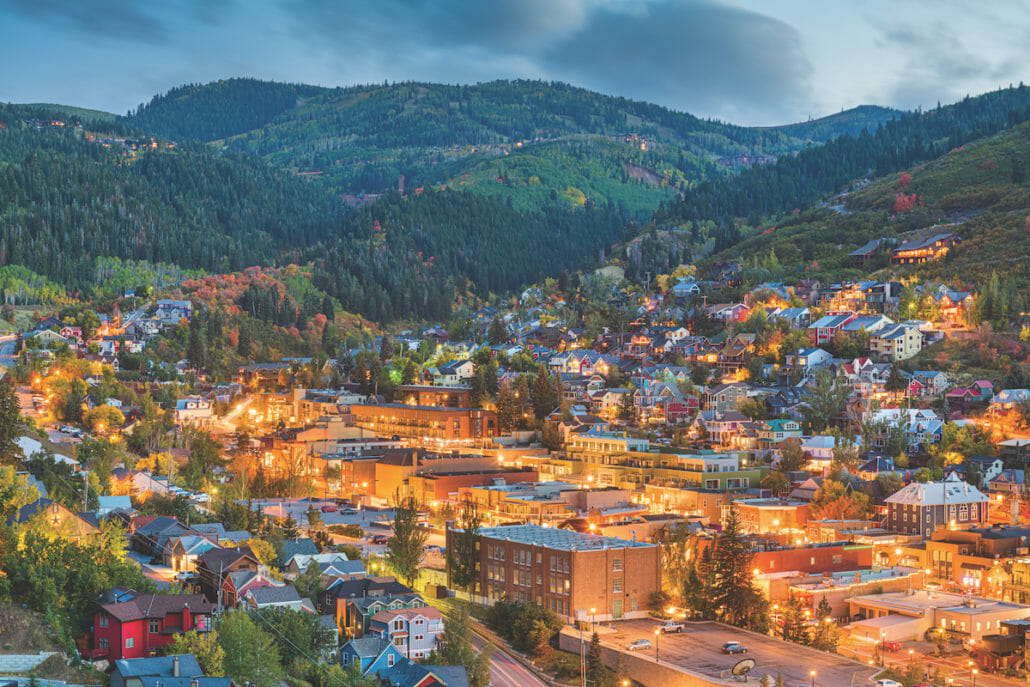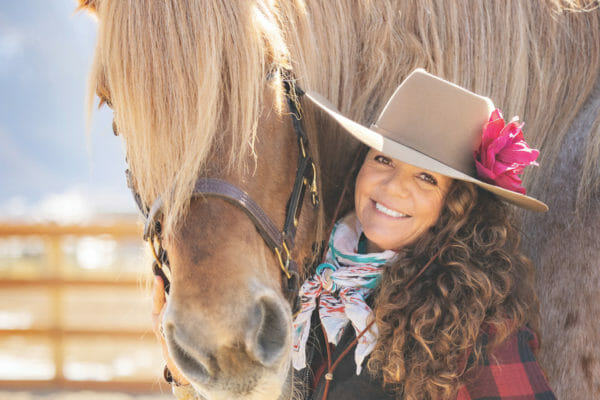
Park City programs provide healing with horses
Alejandra Lara helps people connect with the curative power of equine therapy
Summer 2022
Written By: Natalie Taylor | Images: Julie Shipman
Alejandra Lara grew up in the saddle, riding through the forests of southern Chile on her parents’ ranch near Temuco.
“We lived amongst the Mapuche people, who teach that stones, animals, trees, forests, rivers — everything has a spirit,” says Alejandra. “I grew up asking permission to enter a forest, saying thank you to plants and herbs. I understood the relationship with the earth — everything is a sentient being and everything is interconnected. It was magical.”
Her family’s self-sustaining ranch produced its own meat, dairy, produce, even wheat. They worked in tune with earth’s natural rhythms and without electricity. The oldest of three children, Alejandra’s best friends were horses. “Every day I checked fences and cattle,” she says. “So, I learned to tune in to horses at a very young age.”
For fun, she played folkloric music with her family and skied, which is how she met her former husband. He got a job offer at Deer Valley, so the couple moved to Park City. “We have opposite seasons, so we followed the snow,” she says. “Summer in Chile, winter here.”
Eventually, they decided to stay in Park City year-round. The transition wasn’t easy for a young Latina woman who had no money and didn’t speak English. Some days, work meant cleaning public restrooms.
“I didn’t feel like I belonged,” Alejandra says. “I didn’t have a community for many years. It was very lonely.”
One day she saw that the National Ability Center (NAC) needed volunteers. “I couldn’t speak English, but I could speak horse,” she says. “The horses were a bridge. Finally, I was giving back to the community, creating connections and friendships. I slowly started to feel like a worthy person.”
Nearly a decade later, she is the founder, facilitator, and coordinator of the Equine-Assisted Learning (EAL) program at the NAC. “The NAC offers a place for people of all abilities to come together,” she says. “I’ve helped thousands of people from all walks of life. I trained a team and now it’s so much bigger than me. I’m honored to be part of it.” EAL offers different opportunities for different needs, including those with developmental disabilities, PTSD, and a history with substance abuse.
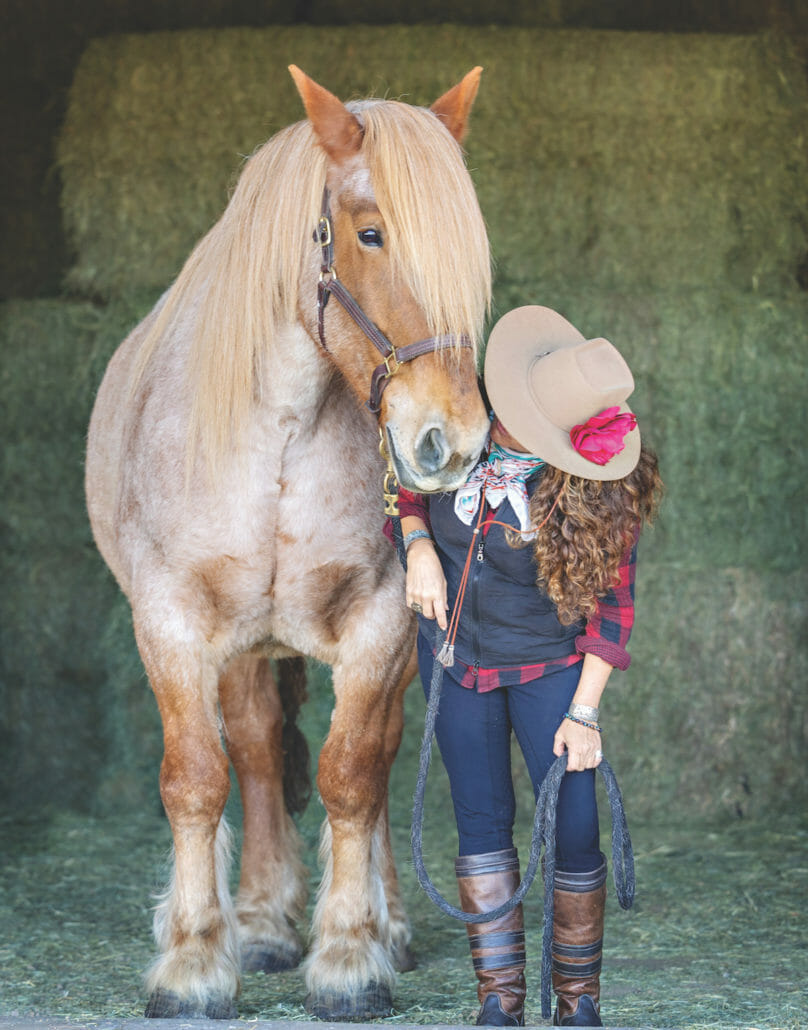
After seeing that horses have the power to help heal humans, she founded Park City Horse Experience in 2016. The program is open to community members and caters to families, corporate groups, and children through mindful-based horse experiences. Alejandra explains that horses respond immediately to whatever is going on. So, if you show up tense and stressed, they mirror that. As soon as the group begins to relax, so do the horses.
“They sigh, chew, and lick,” she says. “The horses reflect us nonverbally, so participants can see it immediately. Once you can create a state of relaxation for yourself, you can create it for others in your home, family, work, school, etc. If we can create a sense of peace together, whatever is happening in the world wouldn’t be happening. We need calm and harmony more than ever.”
But, Alejandra explains, the healing goes both ways. And sometimes, the horses need our help. In 2020, she co-founded REINS, a nonprofit organization that helps rescued horses heal by pairing them with trauma survivors.
“We all have trauma,” she says. “We transform the lives of people by letting them help rehabilitate horses.” REINS relies on equine-assisted psychotherapy, a reciprocal therapy that helps heal both human and horse. The nonprofit is funded solely by donations and currently serves veterans, residential treatment centers for girls with trauma, and the Peace House Community, as well as therapist referrals. Alejandra is the REINS program director.
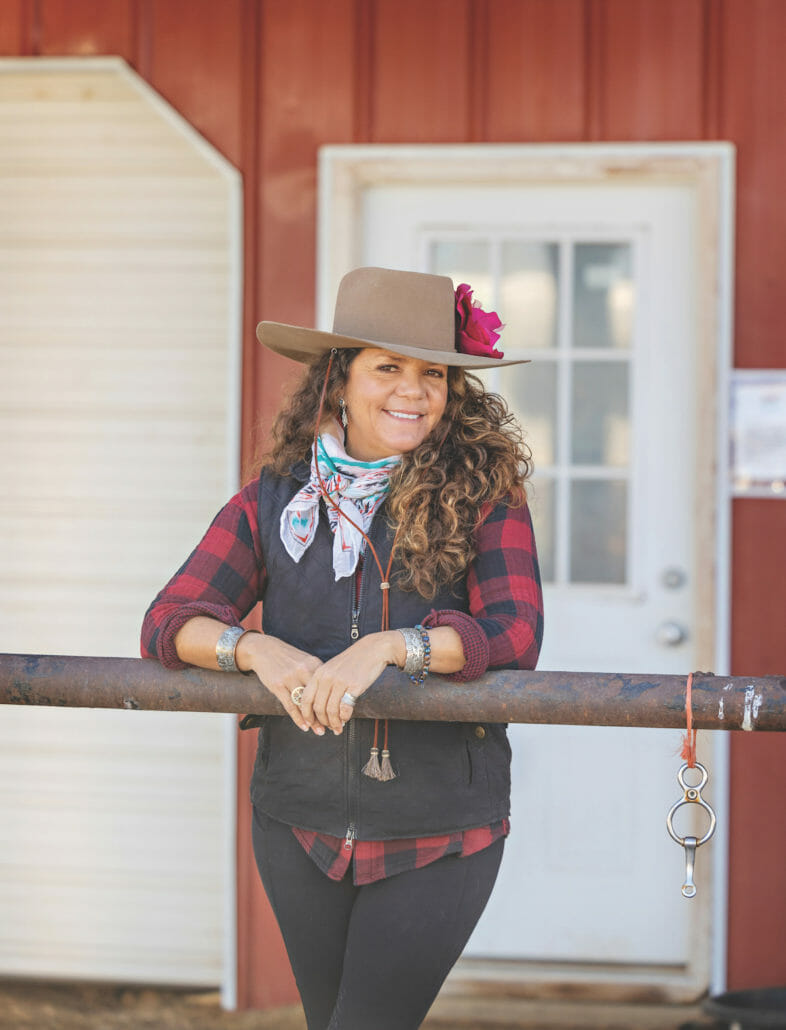
Alejandra has earned many awards for her work, including being named the credentialed professional of the year by the Professional Association of Therapeutic Horsemanship (PATH International) in 2018 for her contribution to the EAL program at NAC. She also holds a special distinction as a military services provider.
“My own experience of feeling different and the loneliness that that brings, helped me see how important it is to create a community of safety and acceptance where everyone feels they belong,” she says. “That’s what the horses do in the herd. You feel the acceptance of the herd, the instant connection, you don’t need to talk. It’s a nonverbal, visceral experience, and you know the horses are experiencing it too because they respond moment to moment. We can become more aware, more accepting, more compassionate. People are looking for connection, a way to get back to nature — both human nature and mother nature. Integration and acceptance, that’s what horses teach us.”
